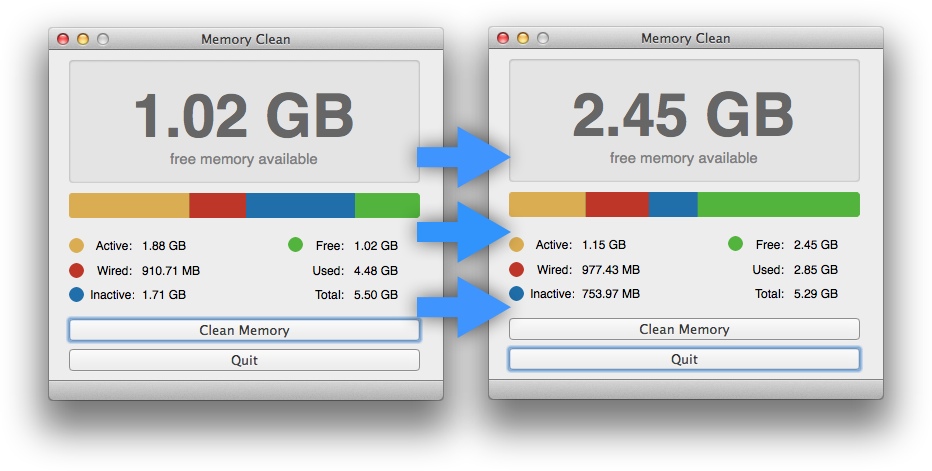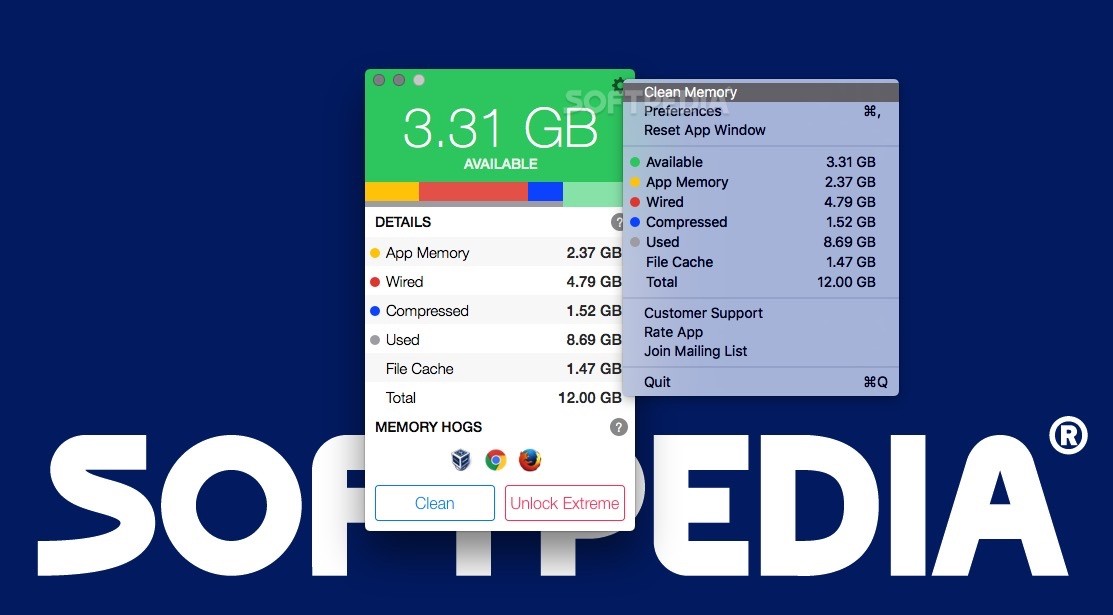

Not a bad cleaning product for bikes and the refil bottles save money.


I suppose it’s similar to traffic film remover but dissolves oil and grease better. +function seed!(r::MersenneTwister, n::Integer)Ġ.Works great but let it sit a while. seed!(r::MersenneTwister, n::Integer) = seed!(r, make_seed(n)) Seed!(r::MersenneTwister=GLOBAL_RNG) = seed!(r, make_seed()) function seed!(r::MersenneTwister, seed::Vector)
#MEMORY CLEAN EXTREME CLEAN PATCH#
The problem here is that the seeding of the RNG is bottlenecking (and is slower than needed, see Seeding dSFMT with a number could be faster? Īpplying the patch to fix this problem: diff -git a/stdlib/Random/src/RNGs.jl b/stdlib/Random/src/RNGs.jl
#MEMORY CLEAN EXTREME CLEAN CODE#
So your code should run ~twice as fast and consume 174 times less memory just by taking that suggestion. Julia> gensum!(rng, 1) setup=(rng = MersenneTwister(0)) # Benchmark sampling from a pre-allocated MersenneTwister: # Benchmark constructing a new MersenneTwister and sampling from it For example: # Re-define gensum! to take its rng as an argument

It’s not necessary to re-run all 3 hours of computation just to verify that this well help. They can be, but the language makes no guarantee that an object will be freed immediately when it becomes unreachable, since it is up to the discretion of the garbage collector.īut rather than worrying about the details of the GC, it seems like you already have a good solution (pre-allocating the RNGs) but you haven’t tried it out yet. I thought objects are cleaned soon after they are out of scope. I do not know whether GC have trouble removing the MT object, as memory usage increases only at the beginning (to 15G), and the end (to 30G). I did not use alternative loops due to parallel computation, and attempting a map operation using filter(condition,map(f, 0x00000000:0xFFFFFFFF)) immediately throws an out of memory exception(possibly due to the lack of lazy has suggested that GC might not be fast enough to clean up the MersenneTwister objects, and provided a workaround which I have not tested yet, and is posted below: const RNGs = I cannot explain this behaviour since I am unfamiliar with internal implementation of Julia, but I strongly suspect that it is caused by GC. However, when the computation nears the end (I presume the last minute or so), the memory usage quickly doubles to 30G. During the beginning, memory usage rapidly climbs up to 15G rapidly, and stays steady throughout the majority of the computation. I did not shrink my example because it cost me 3 hours to run under 12 threads, and I did not want to rerun the program. Println("Found Legendary Character, seed ",i) The goal was to exhaustively search for specific pattern in the entire range of 32-bit random number: using Random The behaviour is that, even though the loop itself is pure(except for printing), and that results can be safely discarded after execution, Julia still consumes large amount of memory, seeming to keep the entire array being looped over in memory. This was originally opened as a github issue #28909, though I was directed here for the question.


 0 kommentar(er)
0 kommentar(er)
